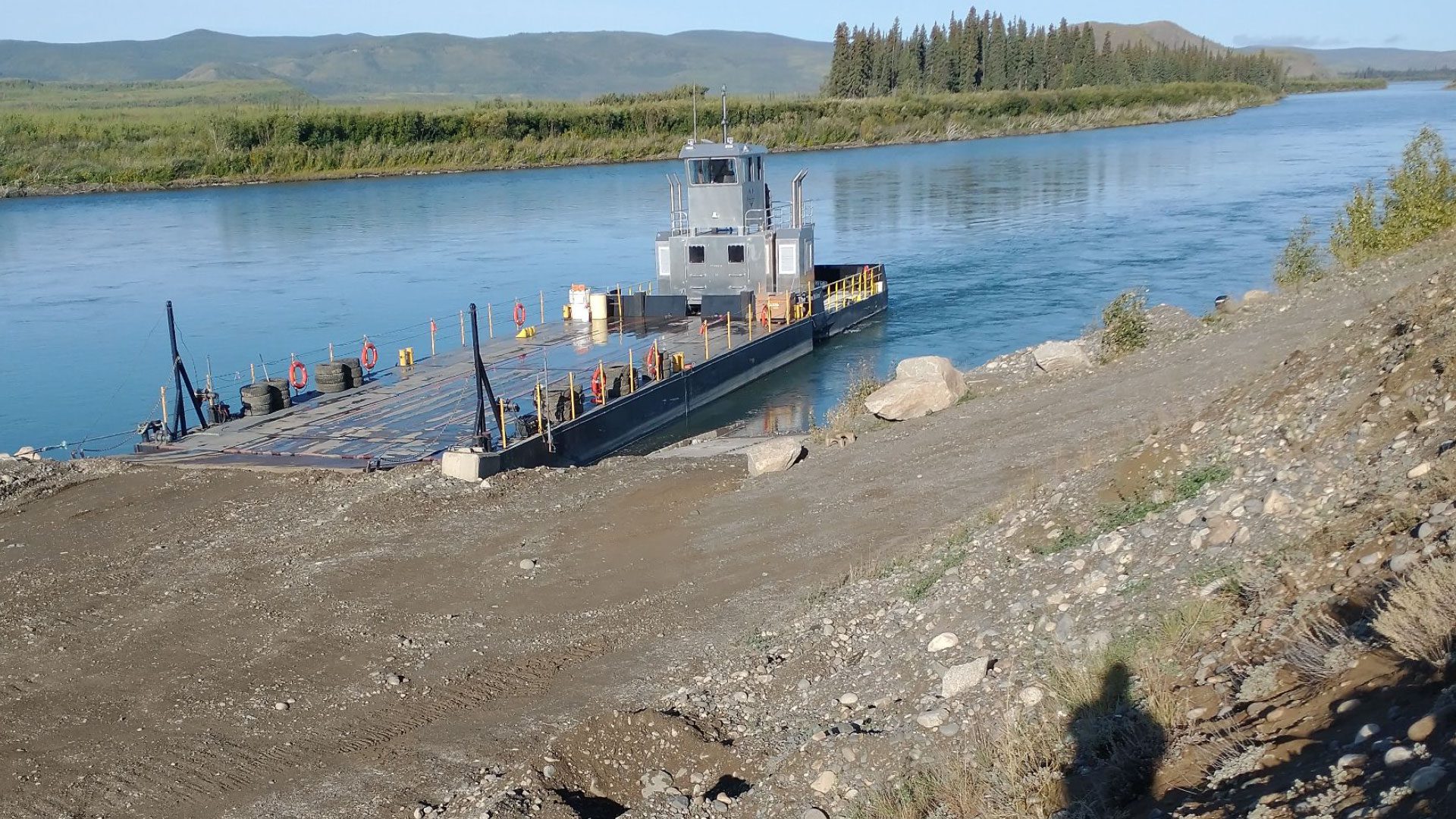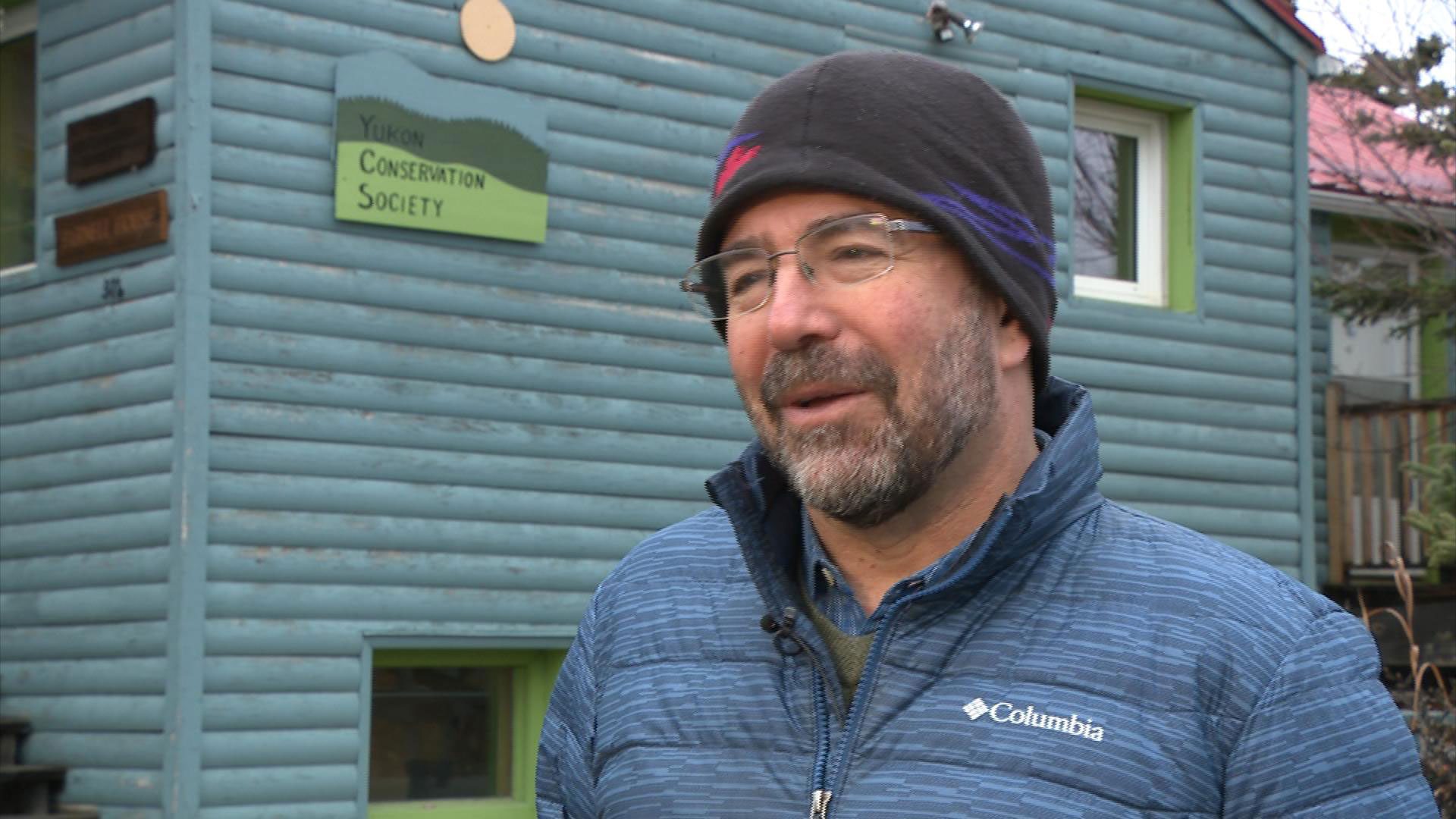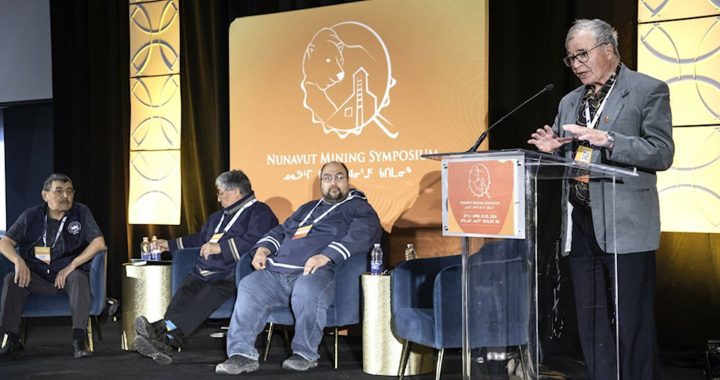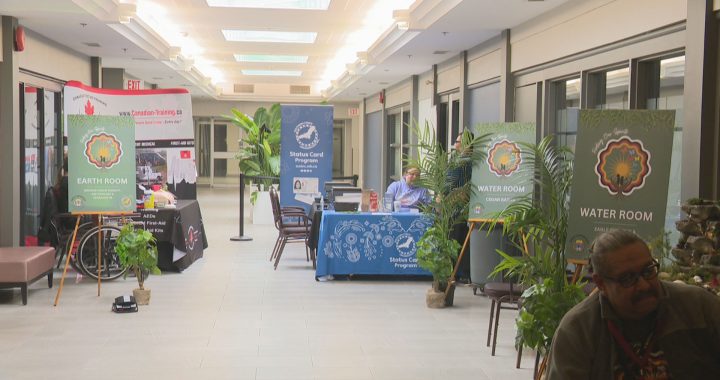A Yukon environmental group says a mining company performing work at a site in central Yukon put salmon at risk during spawning season by dredging up a section of the Yukon River.
“It’s a huge concern to use,” said Lewis Rifkind, mining analyst for Yukon Conservation Society. “Salmon are in enough trouble as it is for a huge variety of reasons.”
The Minto mine is located 240 km northwest of Whitehorse on Selkirk First Nation’s settlement land.
Yukon government is now responsible for day-to-day care and maintenance of the mine. In May it hired JDS Mining to preform work at the site after Minto Metals Corp. abandoned it because of financial issues.
According to a Sept. 9 document from the territory’s department of Energy, Mines and Resources, there was unauthorized work preformed by JDS which was found to have breached the mine’s water license.
“The investigating inspector has reasonable means to conclude that potential violations of the water license may have occurred at or around August 17, 2023 and involved activities associated with barge landing maintenance and dredging,” it states.
According to the report, in late August the territory’s Compliance, Monitoring and Inspections Branch received a tip that heavy equipment was observed operating on the Minto barge landings and allegedly dredged the bed of the Yukon River.
Upon a visit to the site on Aug. 31, inspector Matthew Jenner spotted signs of recent maintenance and repair work on the east and west barge landings and that there was evidence of a tracked machine at both landings.
Jenner said JDS employees confirmed recent work had been done to level the barge landings and that the company hired an independent contractor to dredge a rock from the river bed earlier that month.
The report states JDS didn’t get permission to preform dredging or barge landing maintenance or repairs.
JDS was found to have committed three violations of the mine’s water licence by preforming dredging work outside of an authorized timeframe; failing to provide 10-day notice in writing ahead of time to the Yukon Water Board for the maintenance repair at barge landings; and, failing to implement sediment and erosion control measures before starting work and maintaining those measures during its operation.
The warning was issued to PriceWaterhouseCoopers, the mine’s receiver. A receivership is a court-appointed company that can assist creditors to recover money owed to them.
“(PriceWaterhouseCoopers) has a responsibility to ensure that those conducting activities that the license authorizes, do so in accordance with the license conditions,” the document states.
Yukon Conversation Society weighs in

But the formal warning isn’t sitting well with Rifkind. For the last several years, First Nations in the territory have been grappling with low salmon run numbers. Rifkind said JDS dredged the Yukon River in mid-August at the height of the territory’s salmon run.
“Anytime you stir up sediment in a river or stream by salmon or either moving up or spawning, you’re going to interrupt how they navigate, how they move, and even possibly where they spawn,” Rifkind told APTN News.
“The last thing you want to do is dig up mud, which is what this company did. The water license very specifically says ‘Don’t do this,’ and they went ahead and did it. So, it’s a huge concern to us.”
Rifkind also questions why more serious consequences weren’t imposed on PriceWaterhouseCoopers and JDS.
According to the inspection report, failure to comply with the conditions of the mine’s water licence could result in a $15,000 fine or up to six months of jail.
Rifkind said the fine in particular is chump change for established companies negotiating mining contracts worth millions of dollars.
“Cynics do point out that the company would then have probably just turned around and billed Yukon government for the cost of the fine because that’s who essentially is their employer now,” he said. “But I think it does have to be a financial cost associated with this sort of thing to reinforce the message that this must not happen.
“To be just given a warning, I mean, it’s just a slap on the wrist. It’s not acceptable.”
As Yukon government is now responsible for the mine and its infrastructure, Rifkind said its ultimately to blame for any issues at the site.
“The contractor obviously was at fault, but who engaged the contractor, who’s responsible for their activities is the Yukon government,” he said. “The buck stops there, even though there is no buck because no fine was issued.”
Government defends mine site
On Oct. 25, Yukon NDP leader Kate White likewise pressed John Streicker, the territory’s mines minister, about the issue.
She argued the violations are proof Yukon government is lacking environmental oversight at the Minto site.
But Streicker disagreed.
“There are companies from time to time throughout the Yukon that do make mistakes and that’s why we have compliance monitoring and inspections,” he said. “We work to hold all companies to account to make sure that we protect our environment.”
Streicker was quick to defend what he said was positive ongoing work at the site and that lessons had been learned from the Wolverine mine, whose owners declared bankruptcy following its 2015 closure.
“It is going well,” Streicker said of the Minto site. “It is moving in the right direction. I believe strongly that we have taken the right decisions, learning from Wolverine that we should go to reclamation and closure.”
‘They’ve been bad and they know it’

Selkirk First Nation Chief Sharon Nelson did not respond to repeated requests for comment.
Todd Vogt, JDS’ chief operating officer and executive vice president, said the company had to dredge the river due to an “emergency situation.”
He explained water levels were dropping fast and two exposed boulders at the barge landing were obstructing the barge landing. At the time, the territory was at the height of wildfire season, and there were concerns for workers’ safety at the mine site in case of evacuation.
Vogt said JDS didn’t have the water licence in its possession at the time, but performed the work with “Selkirk First Nation’s blessing.”
He noted the company met several times with government officials after the incident and has accepted all of their recommendations going forward.
But Rifkind said proper steps still should have been taken.
He said JDS should have informed the territory’s Department of Energy, Mines and Resources’ mining inspector, as well as Fisheries and Oceans Canada about the situation.
“This wouldn’t have prevented them from doing the work, but there would have been a paper trail of why the work was required,” he said.
He said a report would then have to be filed with the Yukon Water Board explaining why JDS “varied” from the conditions of the mine’s water licence.
“None of that was done and the mining inspector caught them,” he said. “They mention that they had the First Nation’s permission to move some boulders, and that’s great. But there’s more to it than that when a company violates the conditions of its water licence.
“They’ve been bad, and they know it.”
JDS completed work at the site in July. That work has now been taken over by Boreal Engineering.
PriceWaterhouseCoopers is now looking to get approval to sell the mine site next year.









